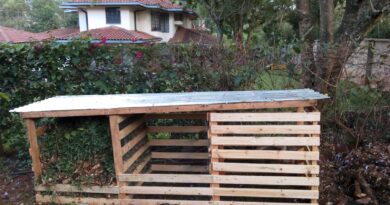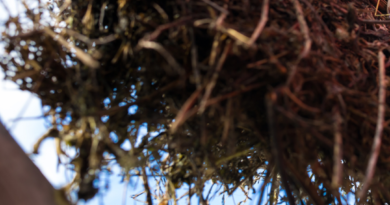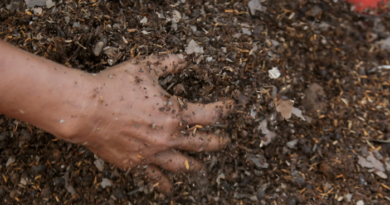The 5 Best Composting Methods And Handy Tools To Use
Composting is integral to sustainability since it allows organisms to recycle organic materials into nutritious soil. In this article, you can read about five different composting methods with handy tools. The benefits include larger and healthier plants, regulating the number of nutrients in your soil, and carbon sequestration, which reduces greenhouse gas emissions.
Food waste
When it comes to composting, there are many methods and tools that you can use to make the process easier. However, not all of these methods and tools are created equal. In this article, we will discuss the best composting methods and handy tools that you can use to make your composting experience more efficient and effective.
Food waste is one of the most commonly composted materials. It is also one of the most accessible materials to compost. You can simply put your food scraps in a compost bin or pile and let them decompose on their own. However, there are a few things that you can do to speed up the process and make sure that your food waste breaks down properly.
The first step is to chop or grind up your food scraps into smaller pieces. It will help them decompose faster. You can also add other organic materials, such as leaves or grass clippings, to help with the breakdown process.
Another way to speed up the decomposition process is to add worms to your compost bin or pile. Worms consume organic matter and excrete castings full of nutrients that plants need—making them an excellent addition to any composting system.
Finally, turn your compost regularly so oxygen can reach all the material inside. It will help accelerate the decomposition process.
Methods of composting
When it comes to composting, there are many different composting methods, each with its advantages and disadvantages. Either way, composting has many benefits that make it worthwhile.
Some common types of composting include:
1) Hot Composting
Hot composting allows organic matter to decompose naturally in an enclosed bin, pit or pile. The material is turned periodically to aerate it and speed up the decomposition process.
2) Vermicomposting
Vermicomposting is a composting that uses worms to decompose organic matter. This process is done in a bin using a particular type of earthworm.
Vermicomposting is an excellent way to compost kitchen scraps and other organic waste. It is also a great way to recycle used paper products. The final product – vermicompost – is high in nutrients and can be used to improve the quality of your garden soil.
3) Bokashi Composting
Bokashi composting is a type of anaerobic fermentation used mainly in small-scale composting. It is a quick and easy way to compost kitchen scraps and other organic materials. Bokashi is Japanese for “fermented organic matter.”
The bokashi method involves layering food waste in a container with bokashi bran. The bokashi bran is a mix of microorganisms that breaks down food waste. The bokashi process can be done indoors, making it a good option for those who don’t have outdoor space for composting.
4) Trench Composting
Trench composting is a great way to reduce the amount of waste sent to landfills. It involves digging a trench in your garden and adding organic matter to it. The trench is then covered with soil to encourage decomposition.
5) Sheet Composting
Sheet composting is ideal for small gardens or yards. It involves layering organic matter on the soil, such as leaves and grass clippings.
Tools to use for Composting
There are many ways to compost, but not all are created equal. Some methods are better suited for large-scale operations, while others are more appropriate for small-scale or home gardens. And some techniques produce better results than others.
But no matter what method you choose, there are specific tools that will make your composting experience much easier – and more effective. Here are some of the best tools to use for composting:
1. A Compost Bin: This is an absolute necessity if you want to compost on a small scale. Many types of compost bins are available on the market, so choose one that fits your needs and budget. You can also recycle a plastic bucket or an old bathtub or build one at home.
2. A Compost Pile: If you have the space, a compost pile is an excellent way to compost larger quantities of organic material. Again, there are many ways to build a compost pile, so research and find a method that works for you.
3. A Pitchfork or Shovel: These tools will come in handy when turning your compost pile or bin. Turning the material helps aerate it and speeds up the decomposition process.
4. A Thermometer: This tool isn’t strictly necessary, but it can help monitor the temperature of your compost pile or bin. Keeping the temperature within the optimal range (between 12 and 18 degrees Celcius) will help ensure that your compost breaks down properly.
FAQs About Composting
1. What is composting?
Composting breaks down organic matter, such as food scraps, twigs and leaves, into a nutrient-rich soil amendment known as compost. Compost improves the quality of your soil, which in turn can lead to healthier plants.
2. How does Composting work?
The key to successful composting is creating the right conditions for microorganisms, such as bacteria and fungi, to break down the organic matter into compost. These microorganisms thrive in an environment that is moist, warm, and has plenty of oxygen. By providing these conditions, you can speed up the composting process.
3. What can I compost at home?
You can compost various items from your kitchen and garden, including food scraps, eggshells, and garden waste. Avoid adding meat or dairy products to your compost pile, as these items can attract pests and create unpleasant odours. These are best fermented using the Bokashi technique.
4. How do I start composting at home?
There are several ways to start composting at home. One option is to purchase a ready-made bin or recycle an old one. Alternatively, you can build your compost bin using wooden pallets or wire mesh.
5. How long does it take?
Composting can take anywhere from three weeks to even one year. It all depends on the technique used and the efforts put towards composting.
Read through the various techniques and select the one that works best for you.
Each type of composting has its benefits and drawbacks, so choosing the suitable method for your needs is essential. No matter which technique you select, composting is rewarding!
Conclusion
So there you have it — the five best composting methods and tools you can use to make your compost at home. Composting is a great way to reduce waste, save money on disposal fees, and help your garden or lawn thrive. Give one of these methods a try and see how easy and rewarding it can be.




